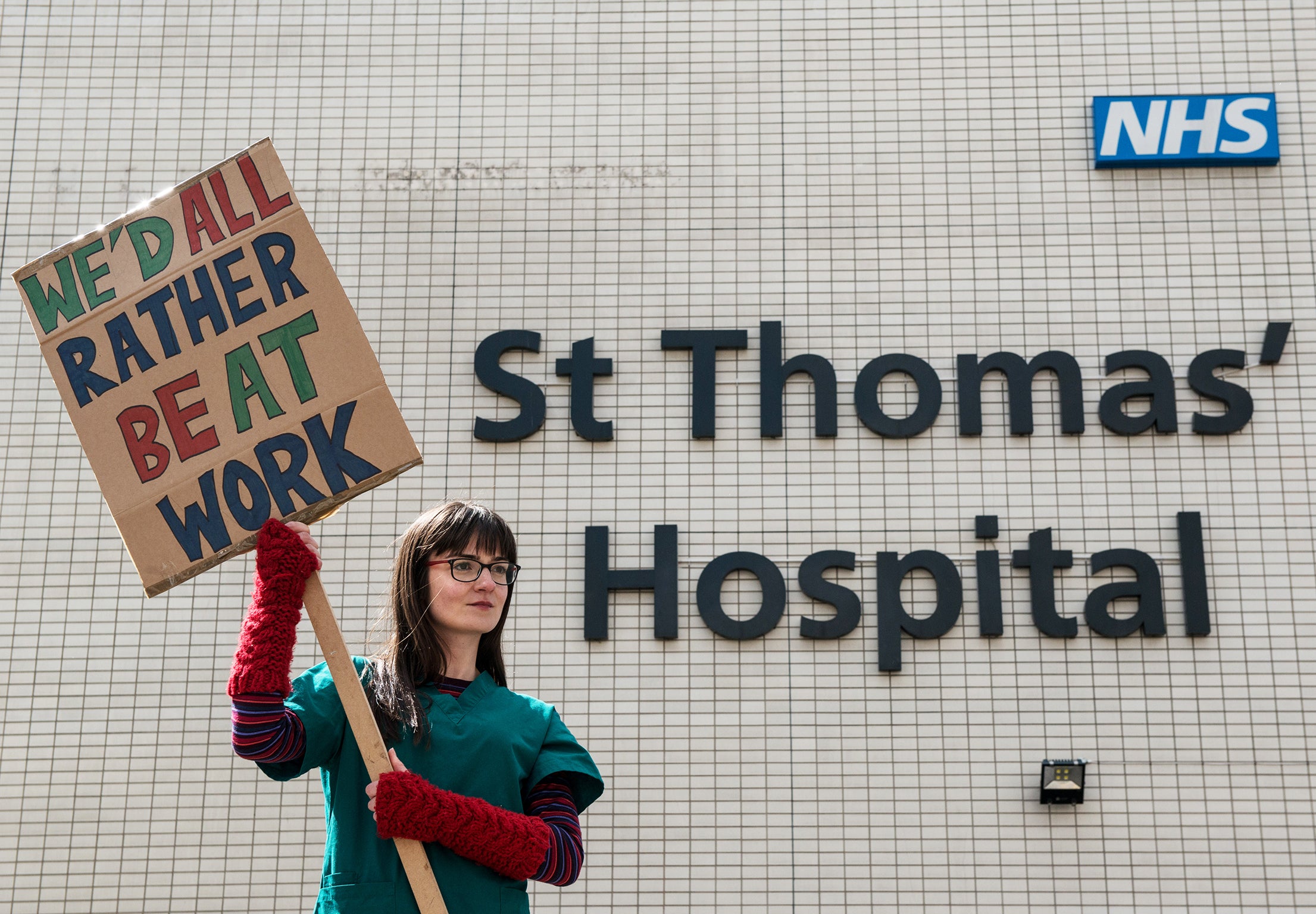The atmosphere at the Junior Doctor's Annual Conference is optimistic – but we have a long way to go
One doctor I met was spending his 30th birthday at the conference and another had just got engaged this morning leaving her new fiancé 10 minutes after the proposal to make it to the meeting

Your support helps us to tell the story
From reproductive rights to climate change to Big Tech, The Independent is on the ground when the story is developing. Whether it's investigating the financials of Elon Musk's pro-Trump PAC or producing our latest documentary, 'The A Word', which shines a light on the American women fighting for reproductive rights, we know how important it is to parse out the facts from the messaging.
At such a critical moment in US history, we need reporters on the ground. Your donation allows us to keep sending journalists to speak to both sides of the story.
The Independent is trusted by Americans across the entire political spectrum. And unlike many other quality news outlets, we choose not to lock Americans out of our reporting and analysis with paywalls. We believe quality journalism should be available to everyone, paid for by those who can afford it.
Your support makes all the difference.After my night shift on call as a trauma and orthopaedic surgery registrar, I grabbed a quick coffee, jumped in my car and drove to the station to catch the train to the British Medical Association annual conference. I didn’t switch on the radio this morning, or listen to my favourite soundtrack: my mind raced ahead to the event. The government and the BMA have been in talks for a week and we heard only yesterday that they are to be extended. The conference could not come at a more poignant time. It was also a good chance to gauge the atmosphere of my junior doctor colleagues during these critical talks.
In my first five years as a doctor, the moments I remember clearest are those that were most challenging: trying and failing to save an elderly lady bleeding to death in front of me with her eight children waiting outside to hear news. Holding a wife's hand as her young husband died of a sudden complication of a terminal illness. Standing with her in the few last minutes of his life faded, seeing her pain at losing the time they thought they had left together. Telling a child we had to put a tube in daddy’s throat and he was asleep because he had a sudden and life threatening asthma attack whilst taking her out for the day.
These have been immensely challenging situations for me to deal with, not only in my medical capacity: processing them emotionally is understandably difficult. It is those moments that define to me what it means to be a doctor, not only because of the story of each patient and their family, but also the story of what came next. Each time my colleagues rallied, finding a quiet space, looking each other in the eye, a quiet nod to acknowledge we knew how each other was feeling, that we could have done no more. Each time, someone shed a tear, another one offered a hug and took the bleep away to give you ten minutes to reflect. Someone always made a cup of tea.
I'm told the army develop incredible bonds with their colleagues in battle that last a lifetime: it is a coping strategy as much as it is emotionally a necessity. Doctors too, I believe, develop these bonds and nevermore than over the last six months of this ongoing contract dispute.
When I walked into the BMA conference, though no one was being resuscitated, it felt like the aftermath of one of these challenging situations. Never before have I walked into a doctor’s conference when each new member being greeted with a hug, a cup of tea or a knowing look. The unity and comradery in the room is palpable and emotional.
Motion after motion was debated, all sorts of topics and suggestions made, ranging from Brexit to workforce planning, from the current dispute to which specialty is the most attractive. There is heathy debate, laughter and optimism.
Of course there is a nervousness about the ongoing talks, but the bonds we'd developed over the last six months as the dispute has raged on meant few words needed to be spoken. It goes without saying that there is a cautious optimism whilst simultaneously a steadfast and solid resolve that the junior doctors contract must be acceptable to the tens of thousands of junior doctors who took unified action.
I have spoken to so many junior doctors today who told me they had never been to one of these conferences, nor been involved with these sorts of discussions at national levels, yet felt compelled to get involved this year. In the face of everything it is surprisingly buoyant and optimistic.
Most palpable is the passion, commitment and resolve of junior doctors. One doctor I met was spending his 30th birthday at the conference with us today and another had just got engaged this morning leaving her new fiancé 10 minutes after the proposal to make it to the meeting. You could say, junior doctors are as dedicated to their cause, a safe NHS and their patients as they are to the most significant events in their own personal lives.
Join our commenting forum
Join thought-provoking conversations, follow other Independent readers and see their replies
Comments